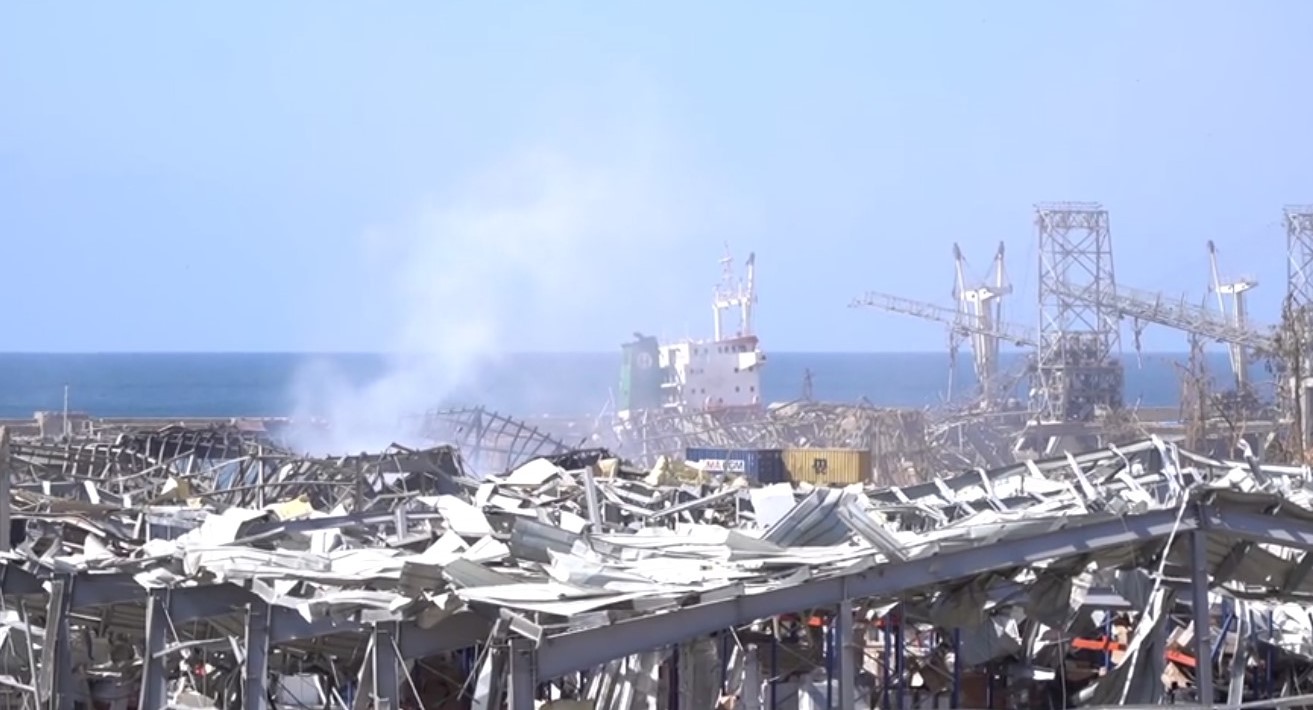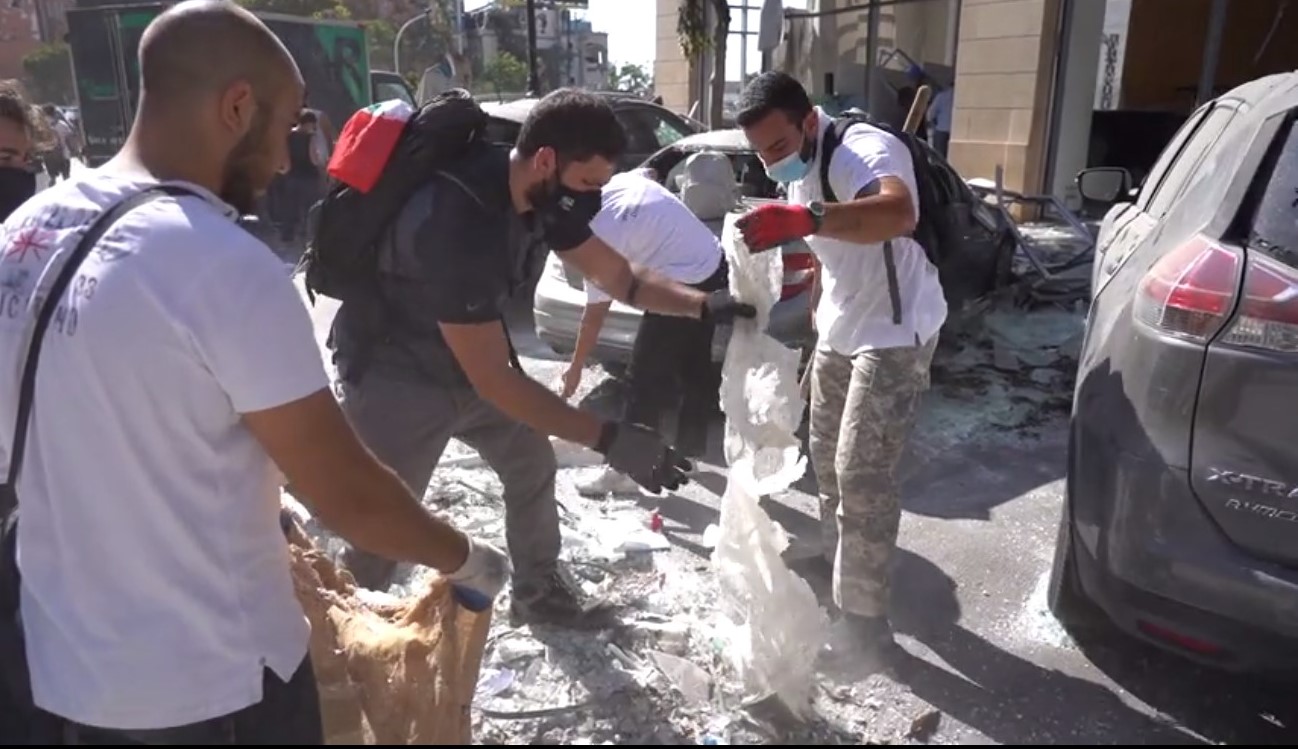Lebanon: Huge support needed as Beirut is shaken to its core
The International Committee of the Red Cross (ICRC) is actively responding to the aftermath of the explosion which occurred on August 4, in Beirut, Lebanon and it remains committed to supporting the country during these difficult times.

The port where the huge explosion of ammonium nitrate occurred on August 4, 2020. The thumbnail photo shows Lebanese Red Cross volunteers and residents combining forces to help in the aftermath.
Lebanon will continue to feel the aftershock of the explosion long after this week’s blast. Besides the loss of life and injury, people have lost their homes and businesses. The country was already in an extremely fragile state, after months of a spiralling economic crisis and the coronavirus pandemic. This is a severe blow to people who are already struggling.
Some 250,000 people have been left homeless by the blast. Hospitals close to the explosion have been heavily damaged, as have electricity and water services. Those who have been able to leave the city have done so.
The destruction of the port could have a devastating impact on people in Lebanon in terms of a loss of capacity to import needed goods. It will also affect the humanitarian aid pipeline, including ICRC’s relief work in Lebanon and neighbouring Syria. Lebanon imports most of its goods and the only alternative port – Tripoli – could take some time to get up and running. Even then, it will be only be able to import 10 per cent of goods. The bottle neck around imports could see prices increase even more.

The community and its citizens are showing resilience and helping in the massive clean up operation, armed with shovels, brooms and buckets. All images: ICRC
Following the explosion, the ICRC carried out an initial distribution of emergency medical supplies to 12 hospitals in and around Beirut. It will provide more support as needed, whether to its partner, the Lebanese Red Cross, or to hospitals and medical facilities across the country.
Some of the injured have been taken to the Rafik Hariri hospital, which the ICRC has partnered with since 2016 to support access to quality healthcare for the most vulnerable. This hospital has become the main Covid-19 diagnosis and treatment centre since the start of the pandemic. For those in Lebanon, the ICRC calls on those who can to donate blood at the Lebanese Red Cross centres.
The ICRC’s work in Lebanon includes:
-
Providing cash support to vulnerable Lebanese and Syrian refugee families;
-
Rehabilitating shelters of Palestinian and Syrian refugees and granting free-of-rent apartments for a one-year period;
-
Establishing and strengthening the power supply infrastructure in impoverished neighbourhoods, and supporting water infrastructure networks to ensure refugees and host communities have access to safe and sufficient water;
-
Providing treatment for weapon-wounded patients, as well as emergency health care for the most vulnerable at health facilities the ICRC runs or supports across the country;
-
Supporting quality Primary Health Care services, Physical Rehabilitation and Mental Health and Psychosocial services; and
-
Advocating with authorities and stakeholders for the continued respect of the principle of non-refoulment and against deportations and forced returns.
For more information, visit the ICRC’s website and to find out what it is doing to put an end to attacks on health workers and patients, visit here.